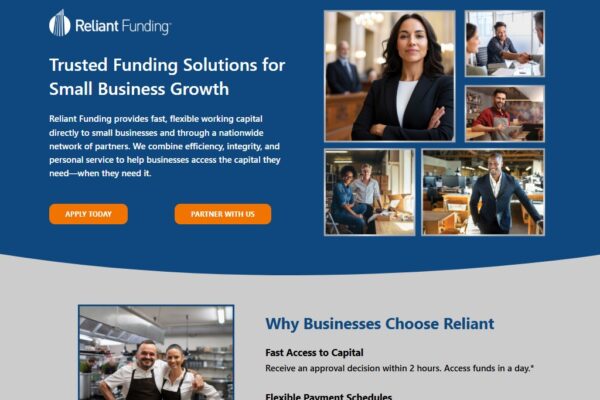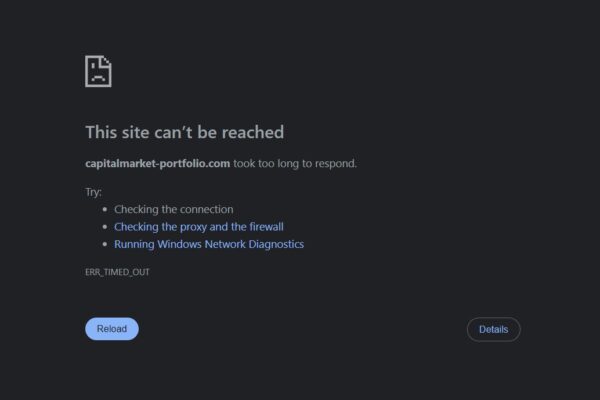FairWealth.org Scam Review -A Deceptive Broker
FairWealth.org shows a number of concerning signals—very recent domain registration, hidden ownership, mixed/negative user reviews (especially over withdrawals), regulatory warnings, and marketing promises that seem unrealistic. Together, these put it in a high-risk category for anyone considering depositing or investing with them.
1) Domain age, ownership transparency & registrar use
-
The domain was registered in November 2023, making it relatively young. New domains are often more risky, because they haven’t had time to establish solid reputation or withstand scrutiny.
-
Owner information is masked via WHOIS privacy services, making it difficult to see who runs the platform or where it is legally based.
-
The domain uses a registrar service known to be popular with many questionable or unverified sites. While that fact on its own doesn’t prove wrongdoing, it increases the risk when combined with other factors.
2) Regulatory status — what is (not) visible
-
FairWealth.org is not regulated by any major, recognized financial authority (such as the UK FCA, ASIC, CySEC, etc.).
-
Some regulatory bodies (for example in Ontario, Canada) have issued warnings that the company is trading or promoting investment services without proper registration.
-
Unregulated status means there are fewer formal protections for users: no oversight, fewer requirements for audits or capital reserves, and limited recourse if something goes wrong.
3) User reviews & withdrawal complaints
-
Multiple users on review sites report problems withdrawing their funds after investment. In many cases, small deposits or test withdrawals may appear successful or show profit, but when users attempt to withdraw larger amounts or the full balance, issues arise.
-
Some reviews say that when withdrawal requests are made, the platform demands additional payments or fees (often unadvertised) before processing.
-
Others mention delayed or no responses from support once the money involved becomes significant.
-
Trustpilot reviews include strong negative sentiment: phrases like “fraud company,” “never give your money back,” and warnings to stay away appear. Also, some reviews are positive, but many suspect those are promotional or even fake or manipulated.
4) Marketing tactics and promises
-
FairWealth.org reportedly uses marketing language promising high or steady returns, safe investment, and an easy path to profit. These promises often downplay or omit the risks involved.
-
There are claims of personalized attention, boutique wealth-management style, and emphasis on security and trust. However, without evidence (audited performance, regulatory licences, custodial proof), such claims are promotional, not proof.
-
Some user complaints suggest “bonus” or account plans that incentivize larger deposits, VIP status, etc., which tend to come with stricter or hidden requirements for withdrawals.
5) Technical & online reputation signals
-
The website has a valid SSL certificate, which is good (but almost universal these days).
-
Traffic and site popularity appear relatively low; fewer independent third-party mentions or discussions in established forums or media.
-
The site is hosted behind Cloudflare, and domain privacy is used. These can be legitimate tools, but in combination with other red flags they are part of anonymity / obfuscation patterns.
-
Some review/trust tools assign very low trust scores to FairWealth.org, citing “young, untrustworthy, suspicious” tags based on multiple risk-factors (website design, domain features, user feedback).
6) Pattern of deposit-versus-withdrawal asymmetry
Some users who invested small amounts report seeing early returns or being allowed partial withdrawal. But as soon as they try to cash out larger sums (sometimes even principal amounts) or the full balance, they are met with requests for additional documentation, “processing fees,” “taxes,” or delays with vague excuses. This kind of asymmetry (easy deposits, difficult or blocked withdrawal) is one of the strongest operational red flags.
7) Behavior of support / customer service
-
Before investing, many users describe prompt, friendly responses. Once withdrawal requests are made, the responsiveness drops, requests to “verify more”, or “pay extra fees” appear.
-
Communication appears to change after deposited amounts grow. Some users say their account managers become harder to reach.
-
Some reviews suggest support gives inconsistent or misleading information regarding where funds are held, what fees apply, or when money can be withdrawn.
8) Risk checklist — questions to ask before engaging
Here are questions you can use to evaluate FairWealth.org (or similar platforms) before committing funds:
| Check | Does FairWealth.org appear to satisfy it? | Concern Level |
|---|---|---|
| Public, verifiable company registration & address | No — ownership is hidden, registration details not clearly verifiable. | High |
| Regulation/licence from recognized financial authority | No — identified as unregulated in several jurisdictions. | Very High |
| Transparent fee schedule & withdrawal terms | Not clearly disclosed; hidden fees or additional demands reported. | High |
| Evidence of successful, large withdrawals (not just small deposits) | Many reports indicate trouble when withdrawing large sums. | Very High |
| Audited performance or independent proof of returns | No credible audit evidence visible publicly. | High |
| Realistic promises (no guarantees of profit) | Marketing appears to promise high returns without matching risk disclosure. | High |
| Trust scores / reputation via multiple sources | Low in many trust and review tools; negative reviews common. | High |
| Ownership transparency (team, leadership info) | Vague or generic — no strong identifiable leaders. | High |
Analytical conclusion
Based on the above, FairWealth.org exhibits a number of serious red flags:
-
Unregulated status, which means low external protection.
-
Hidden domain ownership, making accountability difficult.
-
Numerous user reports of withdrawal difficulties, extra fees, and non-response.
-
Promises that seem ambitious or guaranteed without evidence.
-
Low trust ratings from multiple independent tools and review sites.
Taken together, these signals strongly suggest that FairWealth.org carries a high risk of financial loss for users. While it’s possible nothing illegitimate will happen (some users report small wins or partial returns), the probability of encountering serious issues (loss of funds, inability to withdraw) appears materially elevated.
Final thought
If you’re considering using FairWealth.org, the safest path is to stay away or, if you must test it, only deposit an amount you’re willing to lose. Always document all communications, insist on written disclosures, check with local financial regulators whether the entity is authorized, and do not trust promises of guaranteed high returns.
Report FairWealth.org Scam and Recover Your Funds
If you have lost money to FairWealth.org Scam, it’s important to take action immediately. Report the scam to Jayen-consulting.com, a trusted platform that assists victims in recovering their stolen funds. The sooner you act, the better your chances of reclaiming your money and holding these fraudsters accountable.
Scam brokers like FairWealth.org continue to target unsuspecting investors. Stay informed, avoid unregulated platforms, and report scams to protect yourself and others from financial fraud.
Stay smart. Stay safe.






